2025 CCCC Annual Convention
The Conference on College Composition and Communication (CCCC) is the world’s largest professional organization for researching and teaching composition. Established in 1949, CCCCs promotes intellectual and pedagogical freedom, as well as advocates for the evolving definitions of literacy, communication, rhetoric, and writing. Thousands of scholars and educators gather at CCCCs annual convention for scholarly panels, featured speakers, forums, and workshops. The theme of this year’s convention revolved around “‘Computer Love’: Extended Play, B-sides, Remix, Collaboration, and Creativity.”
The Department of Writing & Rhetoric Studies is proud to highlight the faculty and
graduate students who presented at this year’s conference in Baltimore, Maryland:

Aubrey Fochs
"Remixing Trauma-Informed Pedagogies: Sexual Violence and the Writing Classroom"
This presentation focuses on the need for more instructor training, specifically training related to trauma. Instructors are often underprepared when it comes to responding to or navigating difficult situations, including traumatic ones. Most training in the past has focused on the state mandated or institutionally required "mandatory reporting" policies but ignores actual training related to discourse, feedback, and navigating "in the moment" situations. To showcase this issue, this presentation uses disclosures of sexual violence from the writing classroom and asks the audience to reflect on real-life scenarios. This presentation is followed by two other presentations from fellow graduate students, Rachel Lott and Joseph Mayaki, who examine trauma-informed pedagogy as it relates to incarcerated populations and disenfranchised grief. At the end of the presentation from all three panel members, the panel will provide recommendations and advice for instructors.
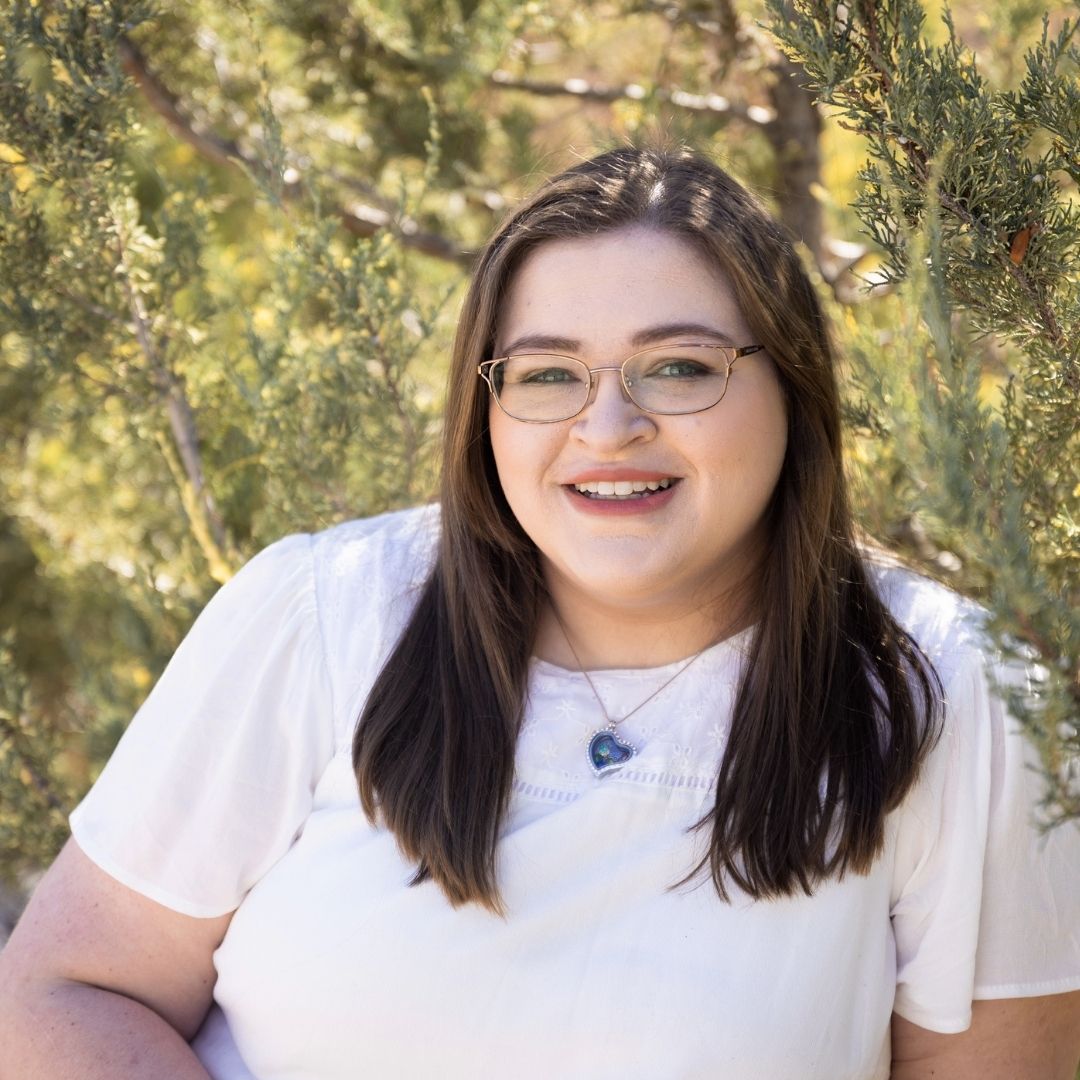
"Interactive Learning and Imaginative Play: Making Room at the Table for Students Who Don’t Fit Academic Stereotypes"
It is imperative to shift our focus and adjust our pedagogy to find strategies that aid all of our students so that they can get the most out of our classes. By incorporating interactive learning and imaginative play strategies into current composition classrooms, we can create better outcomes for both students who hold traditional positions and those with learning disabilities.


"Glimmering 'Nows': Communal Writing and Storying as Un/Stable Liberatory Collaboration"
This panel examines un/stable community interactions as opportunities for educators, creators, activists, and students to co-create transformative social change. Extending Rustom Bharucha’s interweaving of theater and ongoing communal becoming, we ask, When a class—or poem, or photo series—ends, what begins? What do we make together? Read more about her panel here.
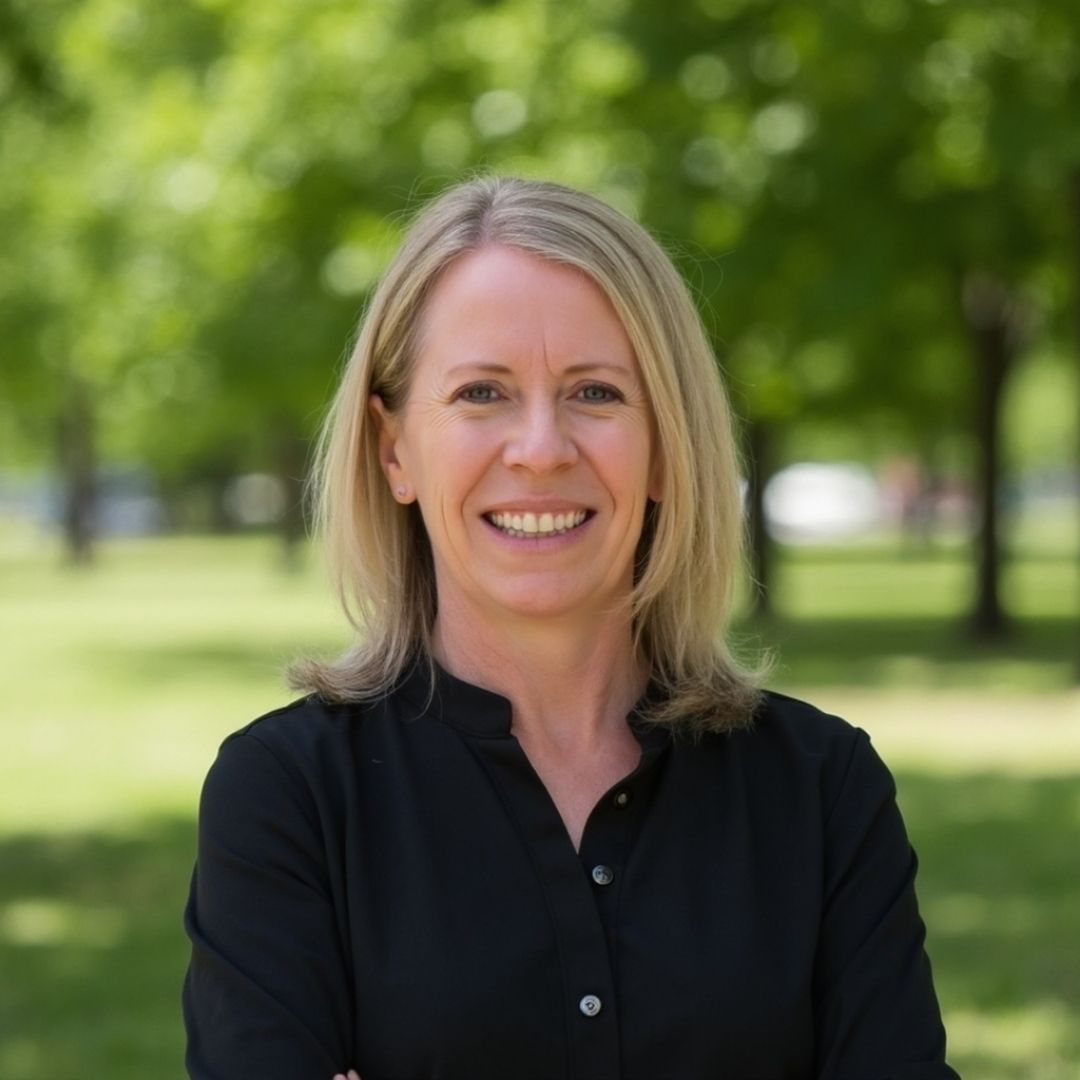
PhD Student Rachel presented with three panels:
(TYCA National) "Pedagogy and Practice in a Prison Education Program: Developing a Comprehensive Literacy Program at a State Correctional Facility"
(CCCC "Prison Literacies SIG Workshop, by invitation) The Challenges of Developing a Comprehensive Literacy Program at a State Correctional Facility"
(CCCC Panel) "Remixing Trauma-Informed Pedagogies: Grief, Incarceration, and Disclosures of Sexual Violence in the Writing Classroom. Presented alongside WRS colleagues Joseph Mayaki, Aubrey Fochs, and Kendall Gerdes."
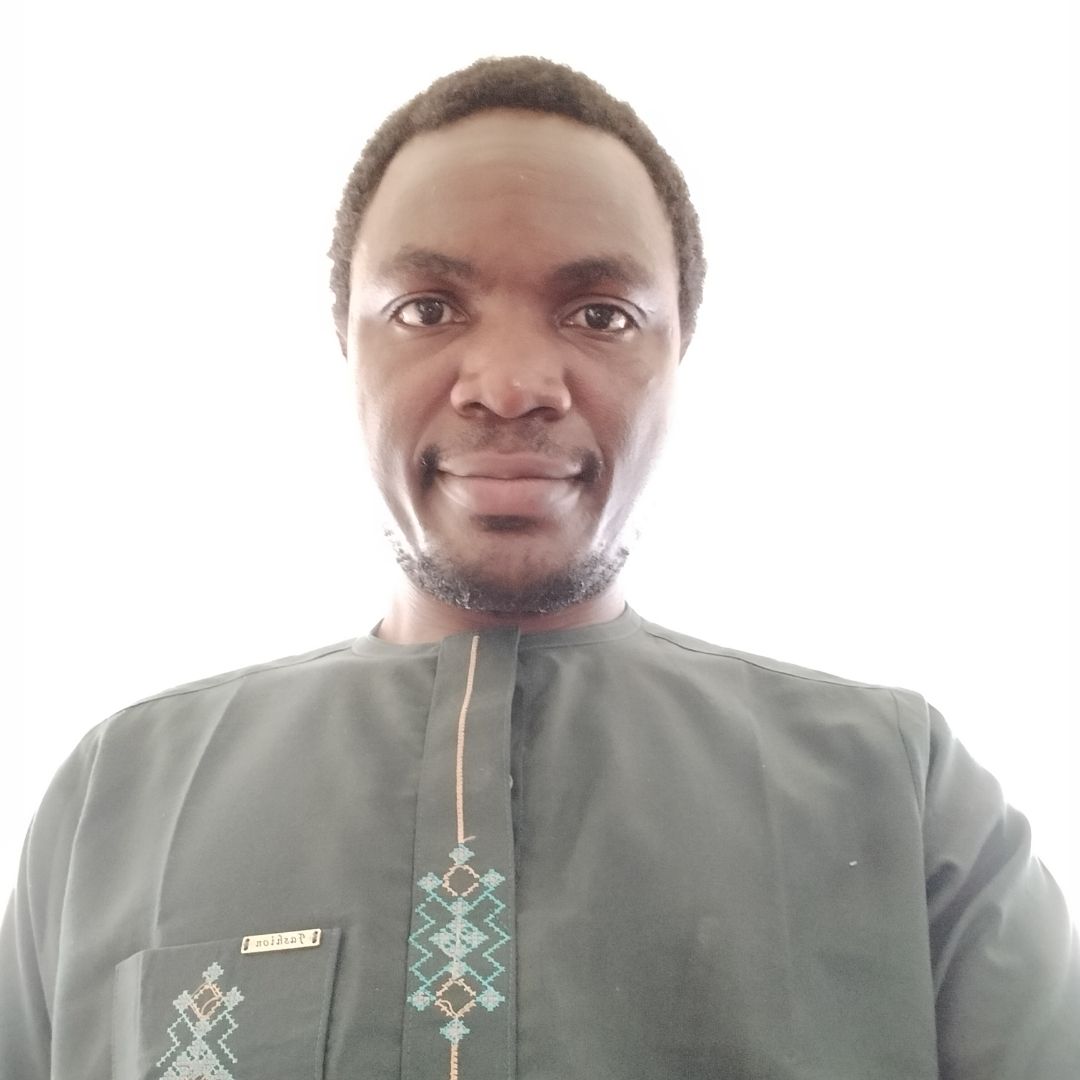
Trauma-Informed Pedagogy and Grief Management in Higher Education: Addressing Students’ Disenfranchised Grief
Grief is a natural consequence of traumatic encounters. The potential benefits of higher education serve as baits to many students, especially those from economically disadvantaged backgrounds. Many of such students see it as their ticket to securing a better life. Students from economically buoyant homes also experience emotional struggles that subject them to some forms of sufferings leading to crisis & inequalities in the classroom (Turner & Staufer, 2023). These possibilities result in a classroom filled with students with diverse forms of unrecognized griefs (Sweet, 2022). This automatically places a challenge of students’ grief management on the pedagogical materials & methodologies of educators. Responding effectively to students of all backgrounds will require recognizing students’ disenfranchised grief through the implementation of trauma-informed pedagogical strategies (Thompson & Carello, 2022). This paper explores the intersection of trauma-informed pedagogy & grief management, focusing on disenfranchised grief in classroom settings. It highlights the best practices through which instructors can recognize various forms of invisible grief that students bring into their classrooms & identify trauma-informed pedagogical strategies that can be implemented to effectively support students experiencing grief.
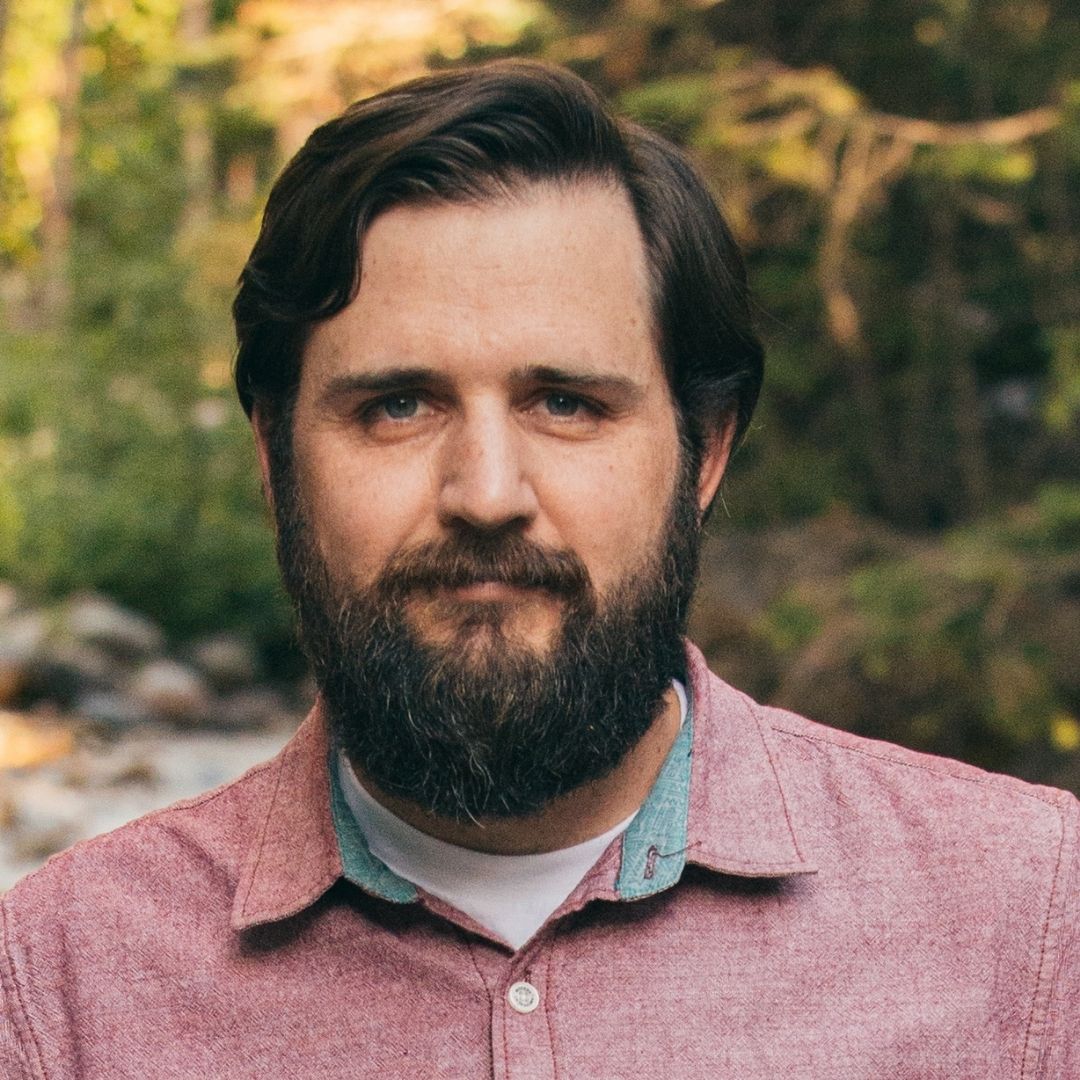
“Reprehensible Remix: Sensory Rhetorics of ‘Relocation’ at the Topaz Incarceration Camp”
In this presentation, Jonathan Stone traces the rhetorics justifying Japanese-American “internment” together with the lived experience of those forcibly removed from their homes and incarcerated at the Topaz Relocation Camp in Delta, Utah. Through archival analysis of the sensory rhetorics created by those in prison (painting, photography, recorded oral histories, etc), Stone parses the US government’s sinister remix of incarceration as “relocation.” Despite this, incarcerated individuals sought to make home in a place they couldn't leave. Stone argues for the resilience of such a sense, acknowledging how art, creativity, and kinship produced sensory rhetorics that made the Topaz experience endurable—not “home,” but emplaced with a sense of home, despite attempts to remove it.
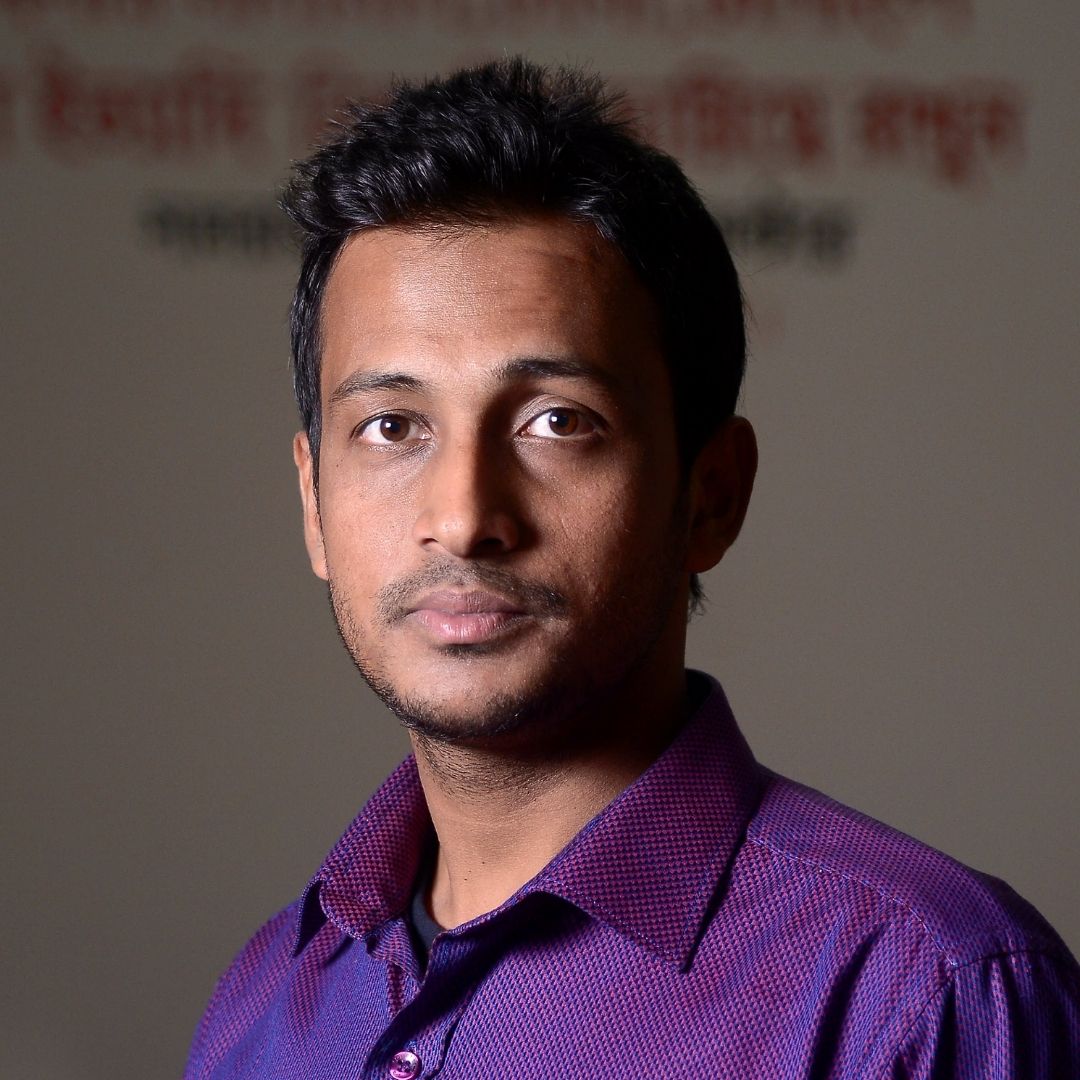
"Standardized Language Proficiency Tests: Unequal Access, Marginalization, and Troubleshooting"
Mohi's paper offers a critical examination of standardization of language as a requirement of hiring students in M.A. and Ph.D. programs from non-English-speaking countries. That being considered, this paper also aims at emphasizing some practices in order to advocate linguistic justice to protect the culture and identities of the students from diverse ethnic backgrounds.

Associate Professor Christie Toth presented with two different groups of student co-researchers at the Two-Year College English Association (TYCA) conference held in conjunction with CCCC. The first group, “Hopeful Futures for Lifelong Literacy Learning,” included in-person presenters Thabata Fay, Henry Knudson, and Zara Morrison, with Cynthia Burge, Katya Pilkington, and Kate Rowan participating remotely. The second group, “Community College Student Perspectives on Preparing Two-Year College Literacy Studies Professionals,” included in-person presenter Chloe Summers and remote/recorded contributions from Mohamed Ibrahem, Samantha Stubbs, and Estefania Zavala. Christie also presented at CCCC as part of the MLA-sponsored panel ““Remixing Recruitment, Retention, and Career Readiness: Building National Initiatives to Support the Academic Workforce in English, Writing, and Languages.”
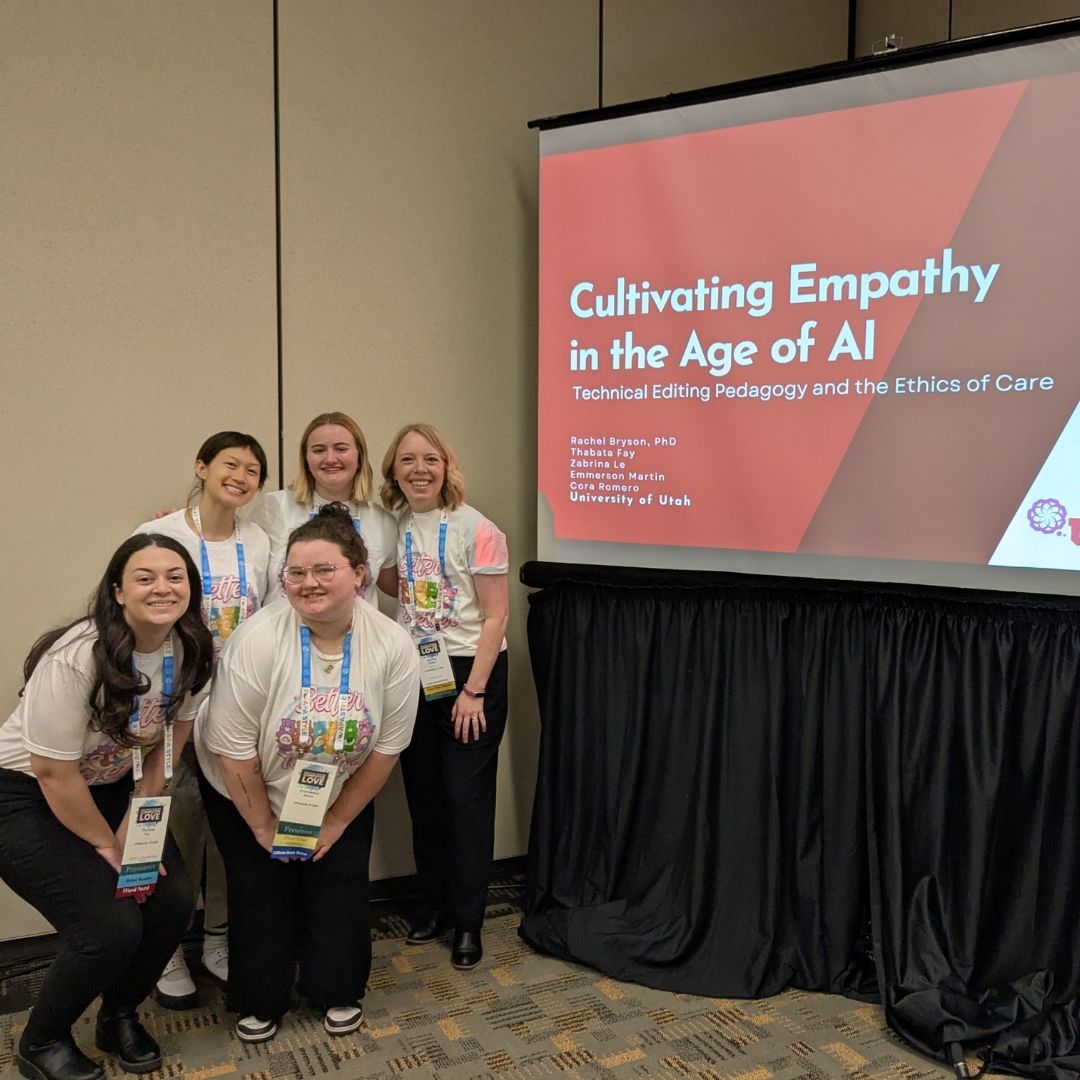
Assistant Professor Rachel Bryson presented with WRS Undergraduate Senior Students: Thabata Fay, Zabrin Le, Emmerson Martin, and Cora Romero
“Cultivating Empathy in the Age of AI: Technical Editing Pedagogy and the Ethics of Care"
This research explores the intersections of care ethics and Generative AI in technical editing pedagogy. Specifically, we ask what it means to build relationships of care in the editing process, and how the rise of GenAI can both afford and constrain care in editing. Our research used the results of collaborative autoethnography and a qualitative interview study to argue for increased attention to an ethic of care in technical editing instruction.
